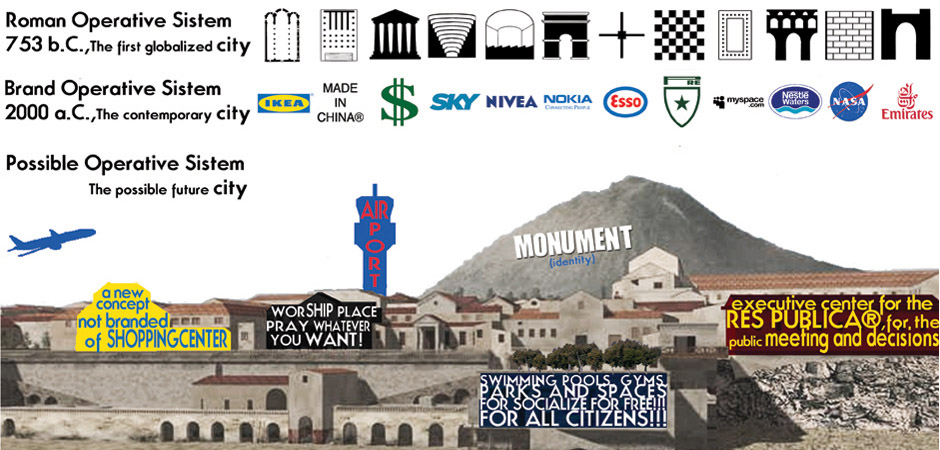| browse projects: | prev | | | next |

Our reflection proceeds from a study by the Harvard Project on the city regarding a Roman Operative System based on the reconstruction of the first generic and global city, made of single standardized "bits". The juxtaposition of this generic plan and the unpredictable relational fluxes generates a city with both a global character as well as a strong identity. With these elements at avail, everyone can build his own city. But how should one do that without losing identity and the “civitas”? Contemporary cities have, through economical power, realized the specific functions of these architectures while making them falsely public and creating needs, which fragment their shape. We absolutely don't want to just realize the city's shape but, proceeding from the study of dynamic relations and from the representation of public space, we try to realize those "bits" on the ancient plan of Herculaneum, chosen as any generic roman city.